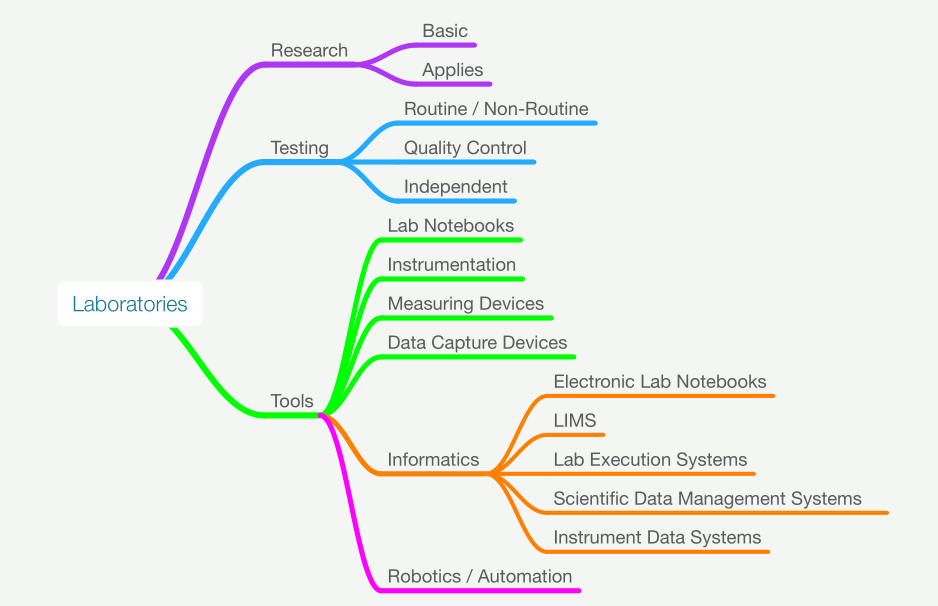Difference between revisions of "Template:Article of the week"
Shawndouglas (talk | contribs) (Updated article of the week text) |
Shawndouglas (talk | contribs) (Updated article of the week text) |
||
| Line 1: | Line 1: | ||
<div style="float: left; margin: 0.5em 0.9em 0.4em 0em;">[[File: | <div style="float: left; margin: 0.5em 0.9em 0.4em 0em;">[[File:Fig1 Liscouski AppInfoSciWork21.png|240px]]</div> | ||
'''"[[ | '''"[[LII:The Application of Informatics to Scientific Work: Laboratory Informatics for Newbies|The Application of Informatics to Scientific Work: Laboratory Informatics for Newbies]]"''' | ||
The purpose of this piece is to introduce people who are not intimately familiar with [[laboratory]] work to the basics of laboratory operations and the role that [[Informatics (academic field)|informatics]] can play in assisting scientists, engineers, and technicians in their efforts. The concepts are important because they provide a functional foundation for understanding lab work and how that work is done in the early part of the twenty-first century (things will change, just wait for it). This material is intended for anyone who is interested in seeing how modern informatics tools can help those doing scientific work. It will provide an orientation to scientific and laboratory work, as well as the systems that have been developed to make that work more productive. ('''[[LII:The Application of Informatics to Scientific Work: Laboratory Informatics for Newbies|Full article...]]''')<br /> | |||
<br /> | <br /> | ||
''Recently featured'': | ''Recently featured'': | ||
{{flowlist | | {{flowlist | | ||
* [[Journal:Blockchain-based healthcare workflow for IoT-connected laboratories in federated hospital clouds|Blockchain-based healthcare workflow for IoT-connected laboratories in federated hospital clouds]] | |||
* [[Journal:Informatics-driven quality improvement in the modern histology lab|Informatics-driven quality improvement in the modern histology lab]] | * [[Journal:Informatics-driven quality improvement in the modern histology lab|Informatics-driven quality improvement in the modern histology lab]] | ||
* [[Journal:Popularity and performance of bioinformatics software: The case of gene set analysis|Popularity and performance of bioinformatics software: The case of gene set analysis]] | * [[Journal:Popularity and performance of bioinformatics software: The case of gene set analysis|Popularity and performance of bioinformatics software: The case of gene set analysis]] | ||
}} | }} | ||
Revision as of 16:47, 28 February 2022
"The Application of Informatics to Scientific Work: Laboratory Informatics for Newbies"
The purpose of this piece is to introduce people who are not intimately familiar with laboratory work to the basics of laboratory operations and the role that informatics can play in assisting scientists, engineers, and technicians in their efforts. The concepts are important because they provide a functional foundation for understanding lab work and how that work is done in the early part of the twenty-first century (things will change, just wait for it). This material is intended for anyone who is interested in seeing how modern informatics tools can help those doing scientific work. It will provide an orientation to scientific and laboratory work, as well as the systems that have been developed to make that work more productive. (Full article...)
Recently featured:










